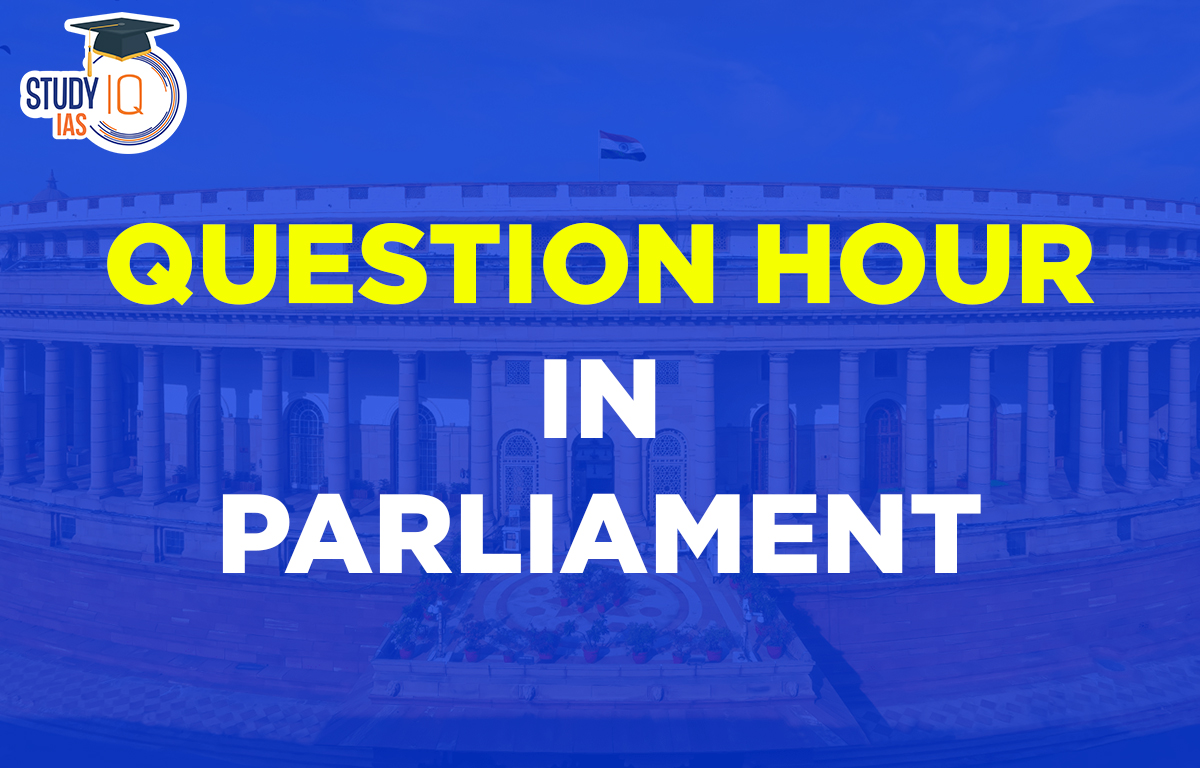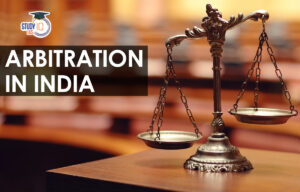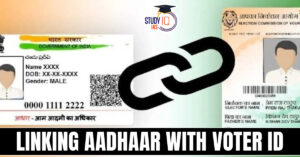Table of Contents
Question Hour in Parliament
Question Hour, which allows for asking and answering questions in the House, is defined by Rule 38. Until the 232nd Session, this hour took place at the start of the House’s meetings. Starting from the 233rd Session, Question Hour is now held from 12:00 noon to 1:00 p.m.
The Parliamentary System’s Question Period is an important tool for ensuring ministerial accountability. The Question Hour in a Parliament is an important part of Indian Polity which is an important subject in the UPSC Syllabus. Students can also go for UPSC Mock Test to get more accuracy in their preparations.
Question Hour in Parliament Meaning
During Question Hour in Parliament, which occurs at the start of each parliamentary session, important questions are intended to be raised in order to hold the government accountable. The Constitution makes no mention of Question Period. Both houses of the Parliament’s Rules of Procedure mention it. The responsible Minister must react to the Parliament either orally or in writing, depending on the type of question posed.
Questions may be directed at both the minister and non-ministerial private members. Not less than 15 full days after the date for which the notice is specified, the Notice to the Questions must be given in writing.
Read More: Zero Hour in Parliament
Rules of Procedure of Question Hour
The Rajya Sabha has rules for asking questions, just like other legislatures. Its first meeting was on May 13, 1952, but there was no Question Hour until May 26, 1952. The first questions were asked on May 27, 1952. On July 14, 1952, the Chairman announced that the first hour of each Monday to Thursday would be for questions, starting on July 21, 1952, until July 1964. Later, this was revised to include Fridays. Initially, Question Hour ran from 11:00 a.m. to 12:00 noon, but after a rule change, it moved to 12:00 noon to 1:00 p.m.
Question Hour in Parliament and Question Types
Below given is the type of question that has been asked during Question Hour in Parliament:
| Question Types: |
|
Starred Questions
A question marked with a star is one that primarily calls for the minister in question to give an oral response. After then, the minister must go before the House and respond. The person posing the question is required to star it with an asterisk to indicate that it is a starred question. The answer to a starred question may be followed by a number of follow-up inquiries from the audience. On any one day, a maximum of 20 questions may be presented for oral responses.
Unstarred Questions
Unstarred questions are those that need a written reply from the minister. There are no follow-up questions allowed after the initial answer. These questions are printed on white paper, and a maximum of 230 can be asked in a single day.
Also Read: No-Confidence Motion
Questions to Private Members
A private member who is an MP but not a Cabinet Minister may also be questioned. A specific question’s subject matter must be related to a House-related Resolution, Bill, or other item. This also has to do with the concerned MP holding them accountable.
Short Notice Questions
A member has the option to submit such a query with less than ten days’ notice. This inquiry must deal with urgent matters affecting matters of general significance. Such inquiries may receive spoken responses from the minister. Additional inquiries are welcome in this situation.
Also Read: Devices of Parliamentary Proceedings
Grouping of Ministries
In the Rajya Sabha, the Ministries of the Government of India are divided into five groups (I, II, III, IV, and V) for answering questions. Each group is assigned a specific day of the week: Mondays for Group I, Tuesdays for Group II, and so on. This ensures each Minister has a dedicated day for questions in both the Rajya Sabha and Lok Sabha.
Changes to these groupings can occur due to restructuring or reshuffling of Ministries. The aim is to balance the number of questions each group receives, ensuring that Ministries with many questions are not grouped together.
Question Hour in Parliament Significance
Question Hour is an important part of Parliamentary proceedings. It allows members to freely ask questions, helping the government understand public opinion and adjust its policies. Questions also highlight mistakes that might go unnoticed and can lead to further investigations or new laws when issues are significant. For example, in 1957, a financial fraud involving LIC’s investment was revealed in the Lok Sabha through this process.
Also Read: Parliamentary Privileges
Question Hour in Parliament Related Facts
When the broadcasting of parliamentary sessions began in 1991, Question Hour became an even more powerful weapon for holding the administration accountable. To improve the efficient operation of the house, Rajya Sabha Chairman Hamid Ansari moved the Question Hour from 11 AM to 12 PM in 2014. The “draw of lots” from the notices received up until the last date determines the Priority of the Question.
On pink and yellow papers, respectively, are printed the questions intended for written and oral responses. Before the start of the meeting, a member may withdraw or postpone their question. All of the starred and unstarred questions with written responses are placed on the table the next day in the event that Question Hour is postponed or the house is adjourned. Every day of the session, with the exception of the budget day and the President’s joint address to both chambers, has a question and answer period.
Also Read: Public Accounts Committee
Question Hour in Parliament UPSC
Members of Parliament may ask questions about any part of administrative activity during the Question Hour, which is scheduled for the first hour of every legislative session.
A member may offer supplemental questions after the minister in question has given an oral response to a starred question, but an unstarred question only receives a written response and cannot be followed by supplementary questions. Students can read all the details related to UPSC by visiting the official website of StudyIQ UPSC Online Coaching.


 Arbitration in India, Types, Benefits, R...
Arbitration in India, Types, Benefits, R...
 Revised Detention Policy Implemented by ...
Revised Detention Policy Implemented by ...
 Linking Aadhaar with Voter ID Endangers ...
Linking Aadhaar with Voter ID Endangers ...





















